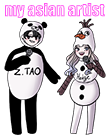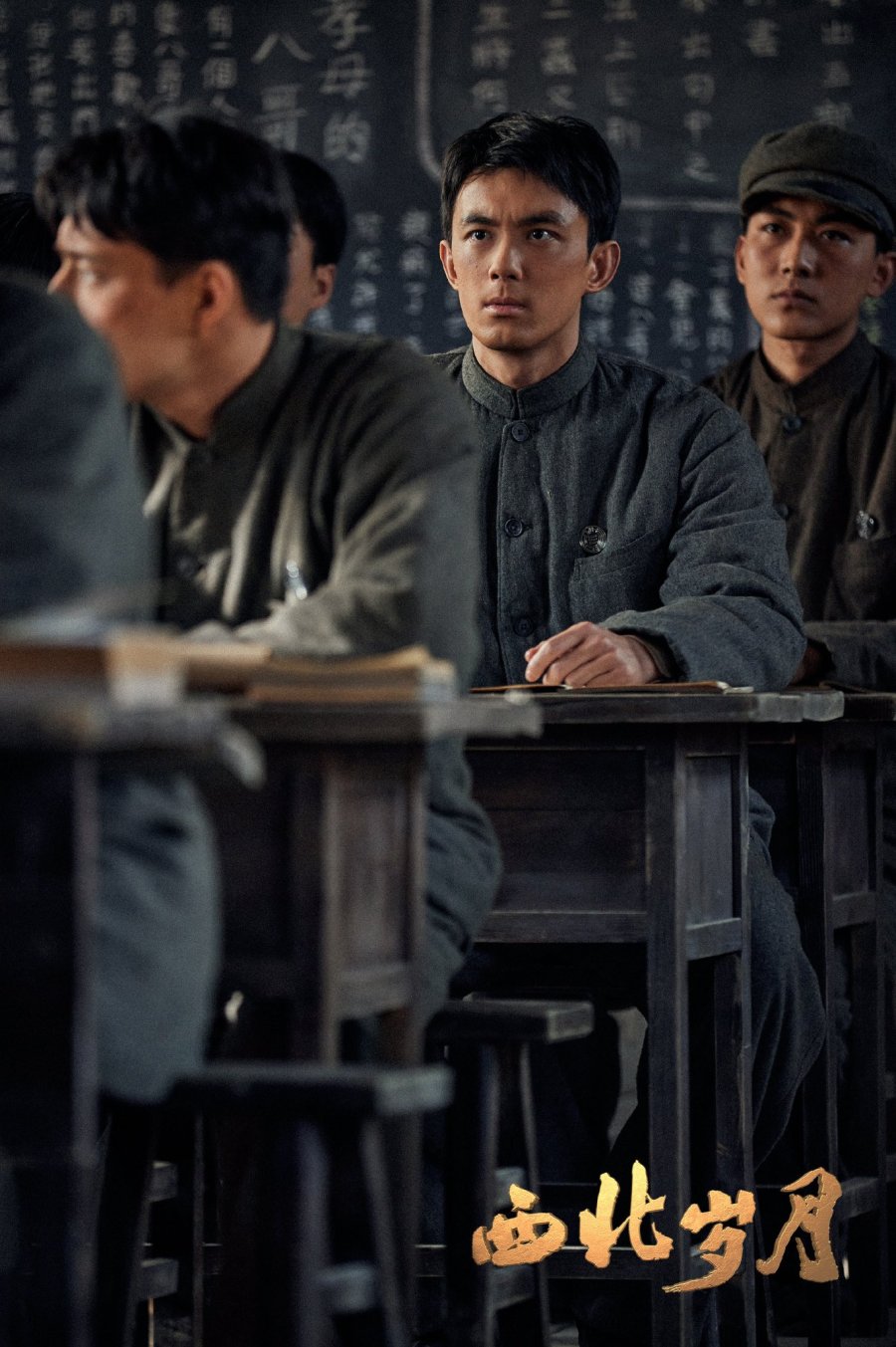Xi Zhongxun agreed to Huang Zhengqing's uprising conditions against all odds, and entrusted Zhang Zifeng to send him Xuan Xiafu's works, which contained a note written by himself, which moved Huang Zhengqing very much. For this reason, Huang Zhengqing readily agreed to the uprising and went to Lanzhou to meet with the leaders of the Northwest Bureau. In particular, when he learned that Zhang Zifeng had secretly joined the party before, he smiled and told him that he no longer had to be an underground party member from now on and could openly disclose his identity.
At present, the 10th Panchen Lama has not given a clear attitude, so Zhandong Ji Jinmei sent people to Lanzhou to pick him up and inspect the Communist Party's policies to see what their army is like and whether it is trustworthy. Xi Zhongxun knew that two living Buddhas had come to Lanzhou, so he personally invited and received them, and assured them that the Communist Party had a clear religious policy, and the freedom of religious belief of the masses in the Tibetan areas would be guaranteed, and the monks in the temples would live and chant as usual.
In order to express his sincerity, Xi Zhongxun changed the name of the 10th Panchen Lama to Buddha according to their custom, and the two living Buddhas were very happy to hear it. After the Living Buddha left, Fan Ming felt that Xi Zhongxun calling a teenager "Buddha" was not a good influence, but Xi Zhongxun believed that this was not only a title, but also an attitude towards fellow Tibetans. If you want to do a good job in ethnic work, you must convey goodwill, respect and sincerity. Only in this way can you stabilize the situation, quell the rebellion, win the hearts of the people, and gradually achieve unity and development in ethnic areas.
Huang Zhengqing then went to Lanzhou to meet Xi Zhongxun. He was very happy to be able to embark on this bright road and completely believed that the Communist Party was trustworthy. Xi Zhongxun knew that Huang Zhengqing and Xuan Xiafu had a very deep relationship, but it was a pity that Xuan Xiafu died too early, so he specially asked someone to find Xuan Xiafu's self-written book. Huang Zhengqing was moved and expressed that he would work as hard as possible from now on and be a useful person to the country.
In Qinghai Xiangride Temple, two groups of people expressed their opinions on the Kuomintang escorting Buddha to Taiwan. Some decided to believe the Kuomintang because the Communist Party was materialistic; others thought that they should continue to wait and see because of what the Kuomintang had done in the past. The living Buddhas sent before came back and conveyed Xi Zhongxun's words. The 10th Panchen Lama felt the sincerity of the Central Committee and the Northwest Bureau and decided to follow the Communist Party because he knew that only by staying in China could he be a true Buddha.
Zhang Zhongliang and Zhao Shoushan were about to take office in Qinghai, and Xi Zhongxun would soon return to Xi'an. Before leaving, he asked the two to talk. Because it was the first time to accept such a heavy burden, Zhang Zhongliang asked Xi Zhongxun for instructions on the focus in the future. Xi Zhongxun said that Qinghai is a multi-ethnic region, so ethnic issues are the top priority. If you are separated from ethnic issues, you are separated from practical issues. At the same time, you should pay attention to the wavering Tibetan thousand households Xiang Qian, and put political struggle first.
Zeng Siyu, commander of the 64th Army of the First Field Army, led his troops to the Northwest and met with Guo Nanpu, a well-known Hui person. The other party responded to the call of the Northwest Army and will prepare to go to Yinchuan to persuade Ma Hongkui and Ma Hongbin to surrender, and is willing to contribute to the new China. According to Guo Nanpu's understanding, Ma Hongkui will be more difficult, but Ma Hongbin is still okay. As expected by Guo Nanpu, Ma Hongkui angrily stated that he would never accept peace talks and vowed to fight the Communist Party to the end, while Ma Hongbin accepted the negotiations.
On September 23, 1949, Ma Hongbin and Ma Dunjing, father and son, led the 81st Army of the Kuomintang Army to revolt in Zhongwei. The People's Liberation Army successfully crossed the Yellow River and reached Yinchuan, the capital of Ningxia. Ma Hongkui fled Ningxia, and the entire Ningxia was liberated. From the 25th to the 26th of the same year, Tao Zhiyue, the commander-in-chief of the Xinjiang Provincial Security of the Kuomintang, and Chairman Bao Erhan successively issued telegrams to revolt. Xinjiang was peacefully liberated, and all five provinces in the northwest were liberated.
On the eve of the founding of New China, the 10th Panchen Lama took the initiative to send a congratulatory telegram to the central government. On October 1, Xi Zhongxun and his comrades in the Northwest Bureau witnessed the founding of New China from the radio, and everyone was thinking. The next day, a mass rally of tens of thousands of people was held in Xi'an. Wei Hai intended to sabotage the rally. Diwu Hanzhu led a team to capture the spies, but Wei Hai took advantage of the chaos to escape. He still fought stubbornly, thinking that victory or defeat depended on this one move. If he succeeded, he would go down in history.

